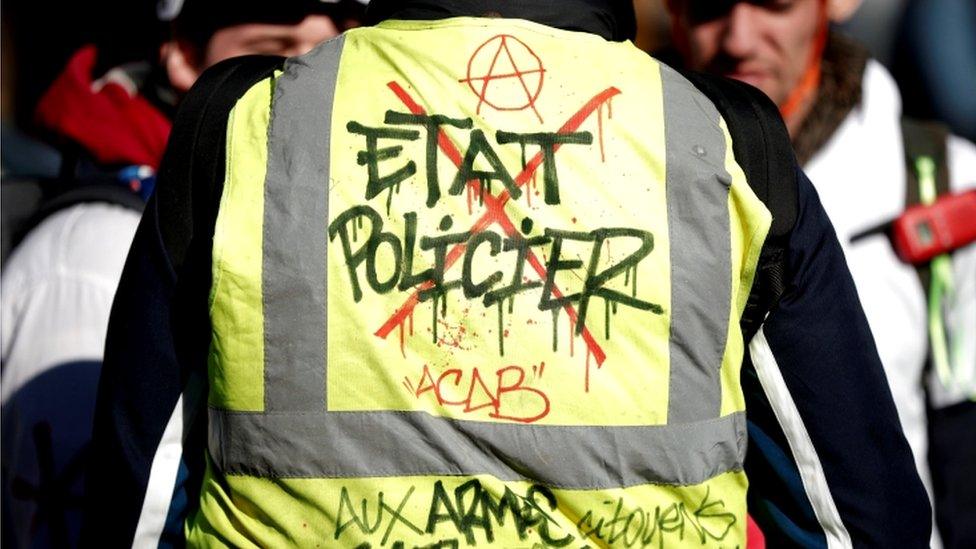Yellow vest protests: Violence returns to streets of Paris
- Published
Protesters in Paris lit fires and vandalised buildings as violence flared once more
Demonstrators have smashed and looted shops in Paris in a resurgence of the gilets jaunes ("yellow vest") protests that started four months ago in France.
Rioters torched a luxury handbag store and vandalised an upscale restaurant on the famed Champs-Élysées avenue.
Police used water cannon and tear gas to disperse the protesters. More than 120 people were arrested.
The protests began over fuel tax rises but have since developed into a broader revolt against perceived elitism.
Police say about 10,000 people took part in Saturday's protest in the French capital, a marked increase compared with similar demonstrations in recent weeks.
Some 32,300 in total took to the streets throughout France, according to the Interior Ministry.
However, police said 36,000 people took part peacefully in a separate march against climate change in another part of Paris.
What's the latest from Paris?
Protesters threw cobblestones at police at the Arc de Triomphe war memorial.
As well as a surge in numbers on Saturday, there was a return to the levels of violence that characterised the early protests.
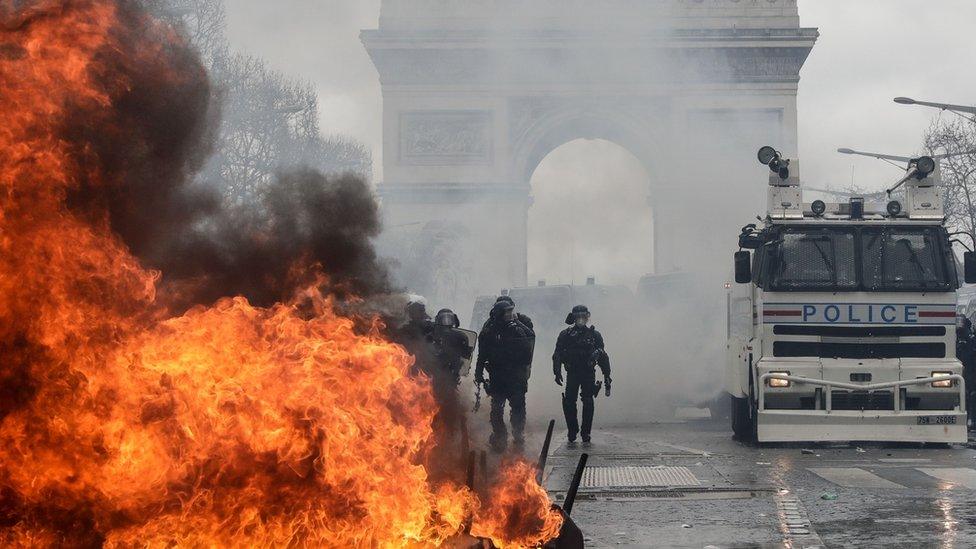
A fire burns on the Champs-Elysees in Paris during Saturday's protests
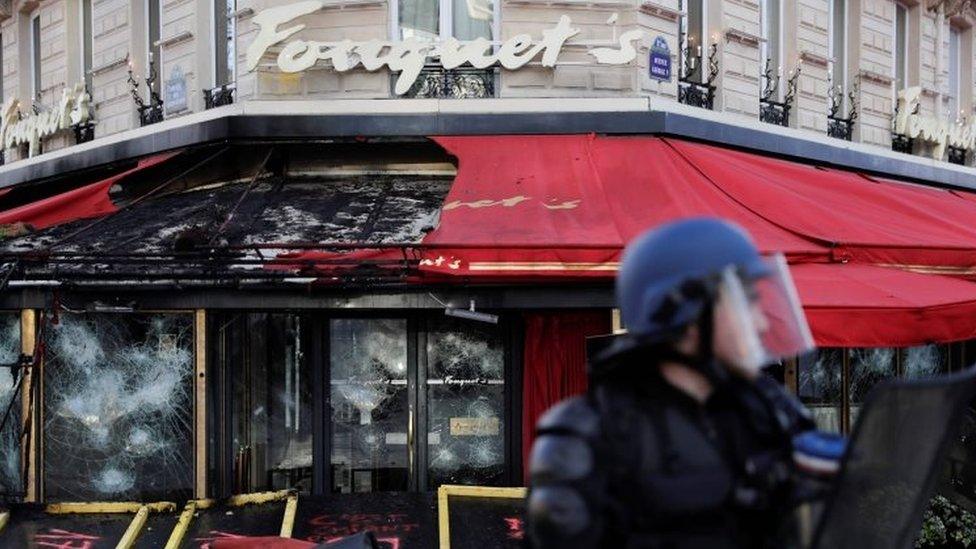
The high-end Fouquet's restaurant was torched
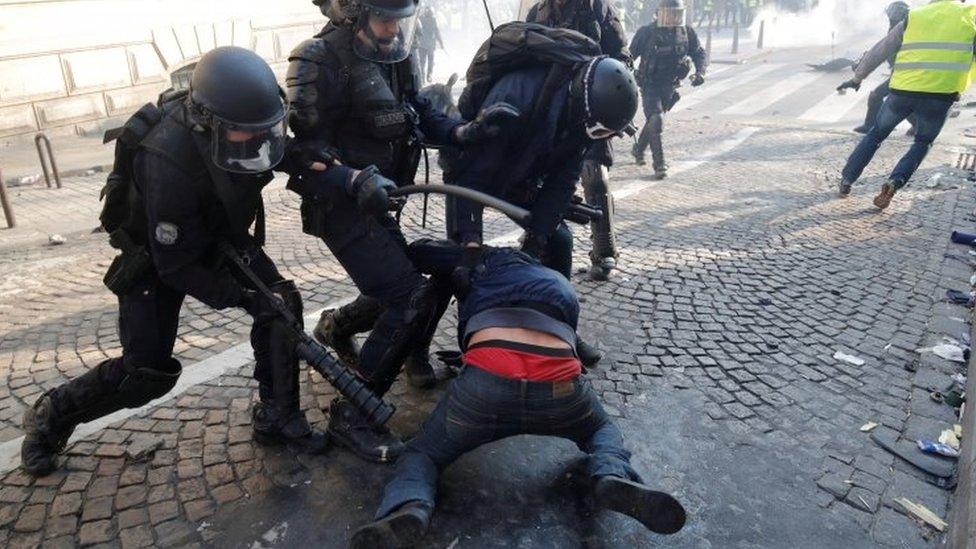
More than 120 people were arrested in Paris
Fouquet's - an upscale restaurant popular with politicians and celebrities - was vandalised, as was a Boss menswear store.
Rioters also set fire to the luxury Longchamp handbag store.
Fires were lit in the streets, with at least one car set ablaze, and a bank branch was set alight.
The bank was located on the ground floor of an apartment building, which was engulfed by flames.
The fire service evacuated the residents and extinguished the blaze. Eleven people, including two fire fighters, suffered minor injuries, a spokesman told the AFP news agency.
How did French politicians react?
Interior Minister Christophe Castaner said that more than 1,400 police officers had been mobilised.
Mr Castaner said he had given police an order to respond to the "unacceptable attacks with the greatest firmness".
Writing on Twitter, he said: "Let there be no doubt: they are looking for violence and are there to sow chaos in Paris."
By mid-afternoon, 129 people were arrested, AFP reports.
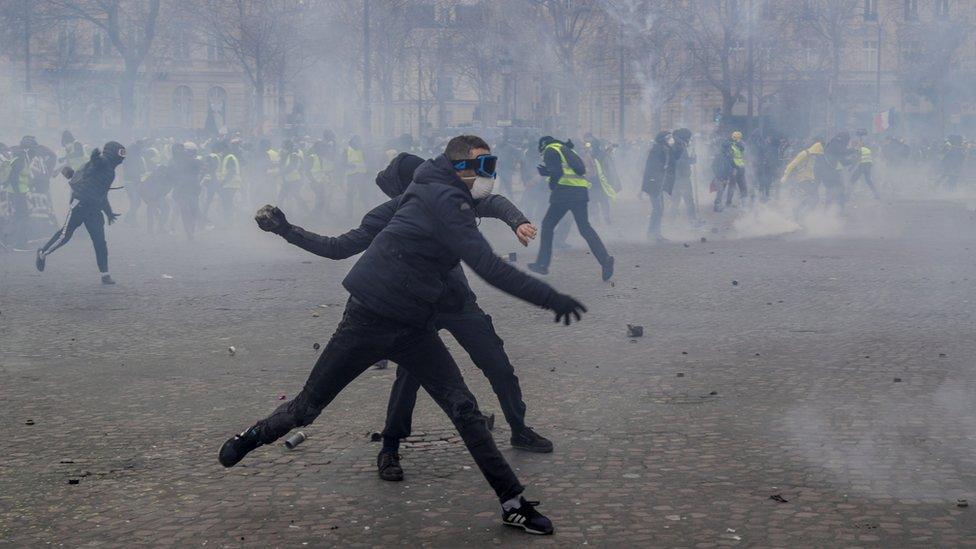
Demonstrators throw cobblestones at police during clashes near the Arc de Triomphe
In January, the government ordered police to crack down on violence in the protests, leading to complaints of police brutality.
President Macron's 'grand debate'
President Emmanuel Macron offered concessions to the protesters after the movement swept the nation - including €10bn (£8.5bn; $11bn) designed to boost the incomes of the poorest workers and pensioners - but they failed to quell the discontent.
For the past month, Mr Macron has toured France, listening to local mayors and citizens as part of his "grand débat" - a big national debate.
He has also asked communities to come together and put forward their ideas for how to fix France, and there have so far been 8,253 local meetings.
The yellow vest movement has faced accusations of anti-Semitism in recent weeks after a prominent Jewish philosopher, Alain Finkielkraut, was targeted by insults and taunts in Paris.
Officers in Paris intervened to form a barrier after a group of individuals involved in the march confronted Mr Finkielkraut and started verbally insulting him.
The 69-year-old academic told Le Parisien newspaper that he heard people shouting "dirty Zionist" and "throw yourself in the canal".
A few days before Mr Finkielkraut was attacked, official data suggested there had been a 74% rise in anti-Semitic attacks in France last year.
- Published27 February 2019
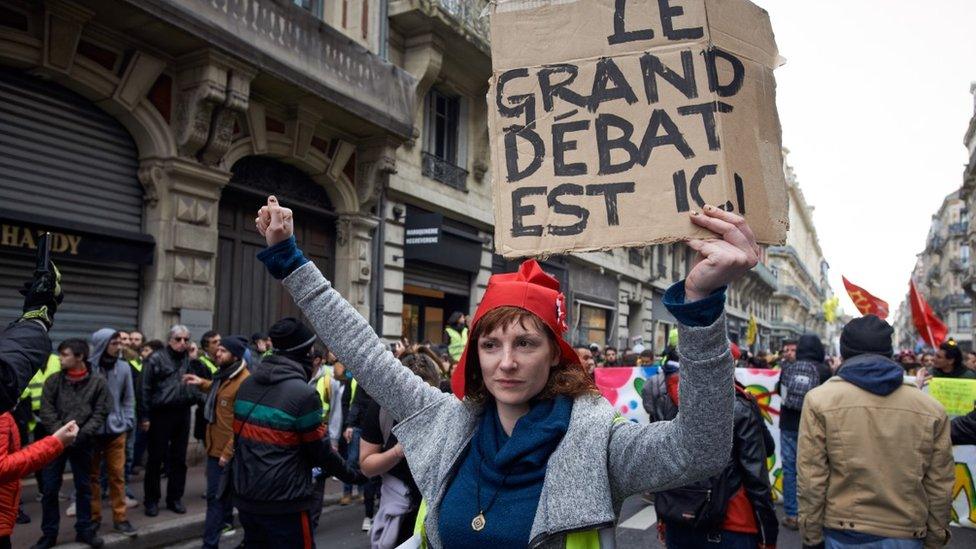
- Published19 February 2019
